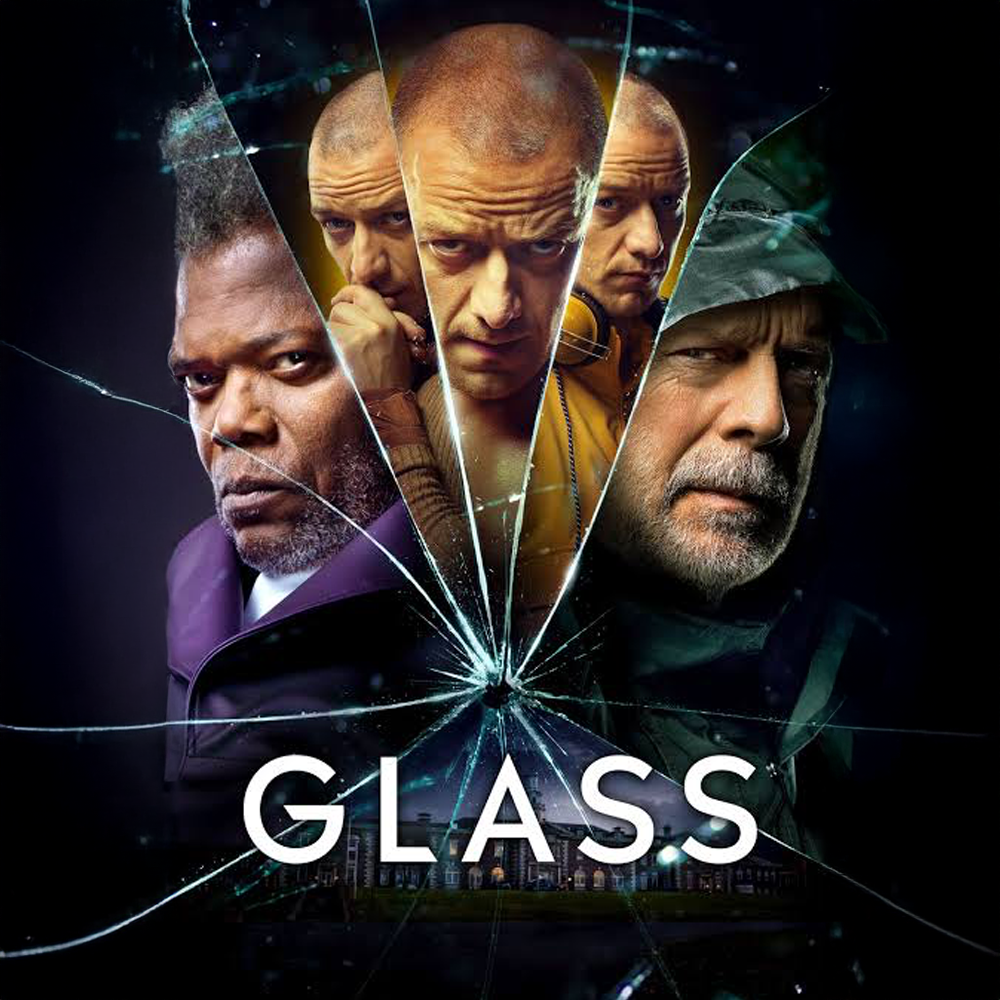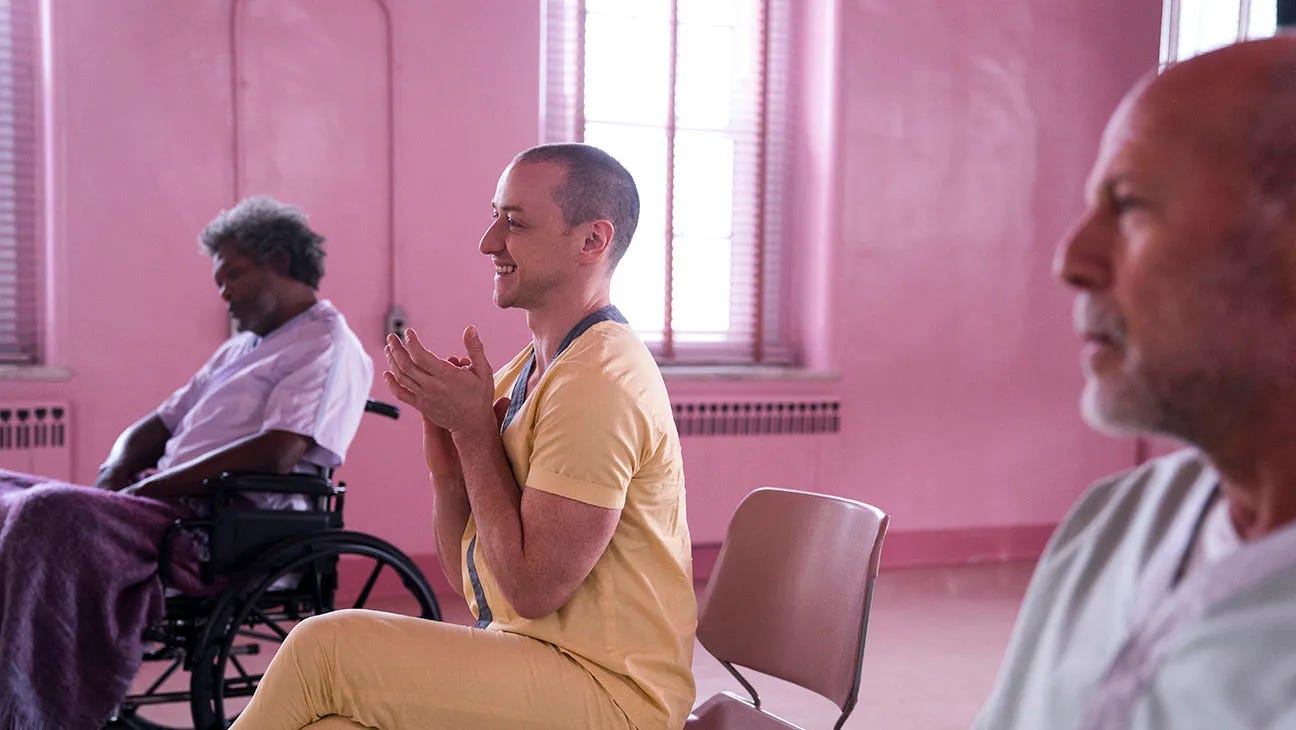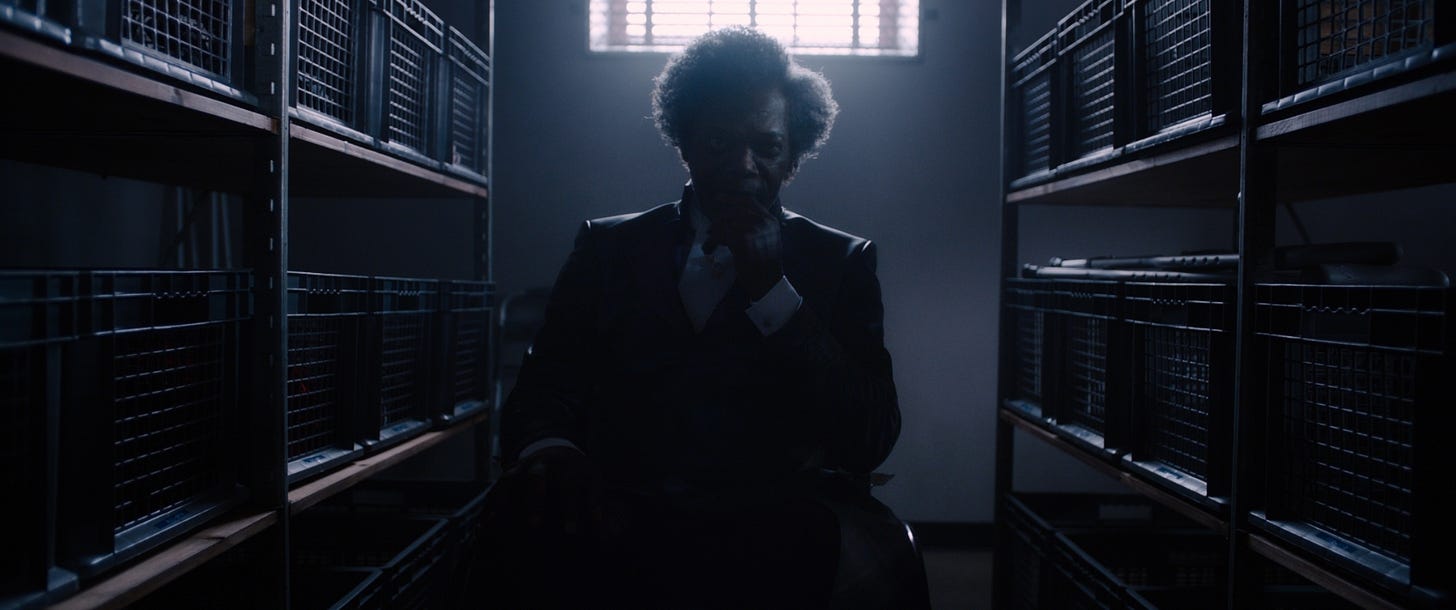Ah, Glass—the long-awaited sequel that nobody asked for, but we got anyway. If you’re coming into this hoping for a triumphant closure to Shyamalan’s so-called “Eastrail 177 Trilogy” (Unbreakable and Split), you might want to temper your expectations. Actually, better yet, just leave them at the door and embrace the inevitable disappointment. For all the hype surrounding this crossover, what we get is a mishmash of half-baked ideas and an almost painfully dull delivery.
Set in a high-security psychiatric hospital (a choice as inspired as stale toast), the film brings together David Dunn (Bruce Willis’ Unbreakable hero), Kevin Wendell Crumb (James McAvoy’s Split personality showcase), and Elijah Price, aka Mr. Glass (Samuel L. Jackson, being… sedated for half the movie). Dr. Ellie Staple (Sarah Paulson), the world’s least charismatic psychiatrist, is tasked with convincing these three that their so-called “superhuman” abilities are nothing more than delusions. Naturally, none of them buy it—except maybe the audience, who by now might be questioning why they ever believed in this film to begin with.
Shyamalan tries to serve up some grand commentary on comic book culture and our obsession with superheroes, but it’s all so muddled and contrived that it never quite lands. Instead, Glass vacillates between being a superhero deconstruction and a psychological drama, never fully committing to either. The characters sit around discussing their supposed powers ad nauseam, but by the time the “big twist” rolls around, you’re too busy checking your watch to care. It’s like Shyamalan is desperate to remind us he’s clever without actually being clever.
There’s a certain irony in Glass being a film about superhumans that looks and feels so depressingly human. The entire movie is soaked in muted grays and blues, with the cinematography as lifeless as the plot. Shyamalan leans heavily on his usual tropes—long, lingering close-ups and moody atmosphere—but it all feels like window dressing for a script that forgot to show up. Even the action sequences, when they eventually do arrive, are flat and underwhelming, drained of any excitement they might have had in favor of ponderous philosophizing.
James McAvoy once again chews the scenery with his multi-personality showcase, playing everything from a child to a monstrous “Beast” in the same scene. It’s unintentionally hilarious—too bad the movie isn’t worthy of his commitment. Bruce Willis, on the other hand, seems to have wandered in from a different film altogether. His performance as David Dunn is so lethargic, it feels like he might just fall asleep mid-scene (and who could blame him?). Samuel L. Jackson, though silent for much of the first half, eventually wakes up just in time to inject some energy into the climax, but by then, it’s too little, too late.
The film’s pacing can best be described as glacial. At over two hours, Glass drags through long-winded speeches and repetitive sequences, particularly with Dr. Staple trying (and failing) to convince the trio they aren’t superhuman. The midsection of the movie feels like it’s stuck on repeat, and when the long-promised showdown finally happens, it’s more of a shrug than a bang.
Watching Glass feels a bit like reuniting with a childhood friend you once loved, only to discover they’re just as confused about their identity as you are about why you’re still hanging out with them. Shyamalan’s early films (Unbreakable included) held such promise, but Glass proves that even superheroes can lose their way. For a movie about extraordinary abilities, it’s depressingly ordinary.
If you’re a die-hard Shyamalan fan who’s desperate for closure on the Unbreakable/Split saga, then maybe you’ll find something to like here. But for most viewers, Glass is a cracked, foggy reflection of the greatness it could have been. By the end, the only superpower you might wish for is the ability to rewind time and watch something else instead. Two stars, but only because McAvoy cringe-inducing performance somehow makes it watchable, for all the wrong reasons.






